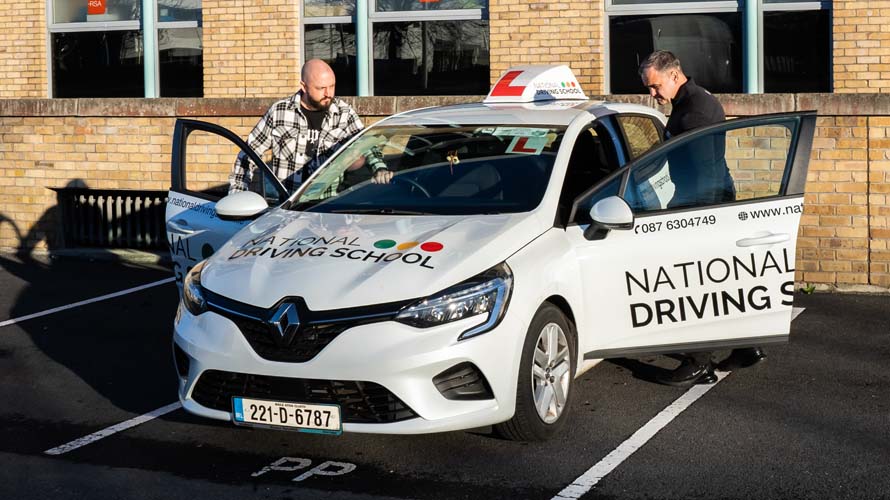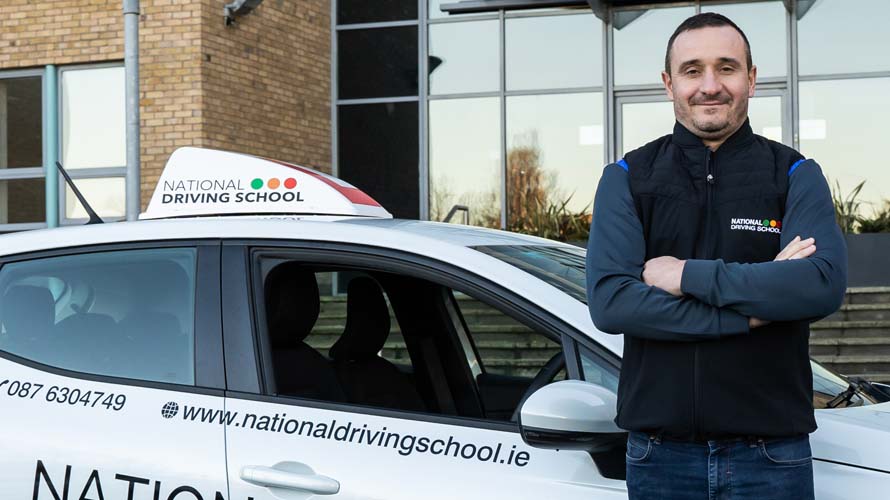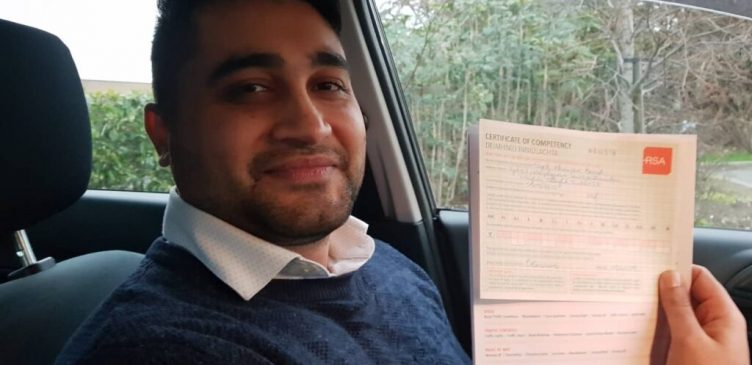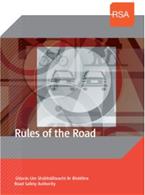Driving after alcohol consumption is a serious road safety issue in Ireland and the laws have been updated continuously to eliminate this offence.
In an earlier report, it was published that alcohol was the contributory factor in 38 percent of all fatal road accidents in the country between 2008 and 2012.
The mandatory alcohol testing through a breath analyser, also known as the random breath testing came into effect in 2006 and has led to significant elimination of the problem.
The Road Traffic Act 2006 gave the Garda, the authority to breathalyse the drivers without the need to form an opinion that they are drunk. The records show that this step was able to save 92 lives in the first year itself. On 26th of October 2018, the Road Traffic (Amendment) Act 2018 came in effect which brought about more changes in the drink driving offences.
A few facts regarding the road accidents in Ireland from past years
These are a few points taken from published research works and reports that highlight the role of alcohol in road accidents.
- Even though the effect of alcohol is same on all human beings, statistics prove that young male drivers, especially between the ages of 19 to 34 are more likely to be involved in fatal collisions.
- Alcohol related accidents in Ireland are most likely to occur late at night and early in the morning. The chances of such accidents are also higher on the weekends.
- Since the introduction of random breath testing, the number of drunk drivers reduced drastically. From 4 out of every 200 in 2006, the number of such drivers came down to one out of every 200 in 2009.
- In a survey conducted in 2015, one in ten drivers admitted to drunk driving in the past 12 months.
- Figures from the past years indicate that 38% of all driver deaths and 47% of all pedestrian deaths are a result of driving after alcohol consumption.
- Men are more likely to drink and drive than the women.
Before considering any options for drinking before driving, a driver should note the following points.
- While the amount of alcohol one consumes can be controlled, the speed at which the body processes it, cannot be fastened. A standard drink like half a pint of beer or 100 ml of wine takes one hour to get processed in the body.
- The last drink in the previous night will affect the amount of alcohol in one’s system the next morning.
The details of the drink driving laws
Drinking and driving is not a thing of the past as many people believe and is still a major threat on the roads. As the level of blood alcohol concentration (BAC) increases, it affects the vital motor and visual faculties controlled by the brain, bringing up serious risks for drivers in action.
The Road Safety Authority has taken steps to ensure that those who are appearing for the Driver Theory tests are fully informed about the facts and risks of drunken driving. The test include a mandatory section on driving under the influence of alcohol for both vehicle and motorcycle drivers.
Before going into the new drink driving laws Ireland, let us look into the four separate drunken driving offences classified Under Section 4 of the Road Traffic Act 2010. The offences are categorised between experienced drivers and new drivers. New drivers are those who have a driving licence for 2 years or less and also those who have no valid licence or permit. These are the following four offences listed under the law.
- Driving or attempting to drive a mechanically propelled vehicle in a public place while being under the influence of an intoxicant to such an extent as to be incapable of having proper control of the vehicle.
- Driving or attempting to drive a mechanically propelled vehicle in a public place while being under the influence of an intoxicant with the concentration of alcohol in his or her blood, within 3 hours after so driving or attempting to drive not exceeding the following values.
- 50 milligrammes of alcohol per 100 millilitres of blood for experienced drivers and,
- 20 milligrammes of alcohol per 100 millilitres of blood for other drivers.
- Driving or attempting to drive a mechanically propelled vehicle in a public place while being under the influence of an intoxicant with the concentration of alcohol in his or her urine, within 3 hours after so driving or attempting to drive not exceeding the following values.
- 67 milligrammes of alcohol per 100 millilitres of urine for experienced drivers and,
- 27 milligrammes of alcohol per 100 millilitres of urine for other drivers.
- Driving or attempting to drive a mechanically propelled vehicle in a public place while being under the influence of an intoxicant with the following concentration of alcohol in his or her breath within 3 hours after so driving or attempting drive not exceeding the following values.
- 22 microgrammes of alcohol per 100 millilitres of urine for experienced drivers and,
- 9 microgrammes of alcohol per 100 millilitres of urine for other drivers.
A violation of these laws can lead to a fine exceeding €5,000 or to imprisonment for a term not exceeding 6 months or to both. It should be noted that the term “intoxicant” includes alcohol and drugs and any combination of drugs or of drugs and alcohol.
The new drink driving laws Ireland
The Road Traffic (Amendment) Act 2018 introduced a few significant changes in the law and the updates are mentioned as under.
- For learner, novice and professional drivers a blood alcohol concentration of 20+ to 80mg will lead to a €200 fine and a 3 months of driving ban.
- For ordinary drivers, a blood alcohol concentration of 50+ to 80mg will lead to a €200 fine and 3 months of driving ban.
- For ordinary drivers, a blood alcohol concentration of 80+ to 100mg will lead to a €400 fine and a 3 months of driving ban.
Surveys have indicated that a large majority of the adult population In Ireland are in support of this newly introduced legislation. For more driving training Dublin , Please reach us right now.
What if you are arrested under the new drink driving laws Ireland?
In case you have been arrested under the law by the Garda, the following proofs steps are generally taken
- You will be informed that you are being arrested for the offence of drunk driving and will be taken to the nearest Garda station
- You will be informed of your rights and that includes the right to consult with a solicitor.
- You will be asked for a blood, urine or a breath specimen which will be divided into two containers in your presence and sealed. While one of these containers will be handed over to you, the other one will be send to the Medical Bureau of Road Safety for necessary analysis.
- The results of the test will be posted to your address and you can also independently analyse your specimen.
- While using an intoxilyser machine that tests the breath, there will be two printouts, one of which will be handed over to you.
- If the alcohol levels are found to be above the legal limits, you will be issued with a fixed penalty notice or summons for appearing in the district court.
- The penalties depend on the amount of alcohol detected in the system and the court also takes into account whether this is your first offence or an advanced one.
- The above penalties are the minimum ones and the discretion of using the penalties depends on the judge. The maximum penalties, as stated earlier, are €5,000 or 6 months in prison or both.
- For drugs like cannabis, cocaine and heroin, it is illegal to drive above the specified speed limit.
For further details related to drunk driving offences you can read the Road Traffic Act and visit the RSA website.
Finishing words
Drunken driving can led to a disaster for not only a driver but also for his relatives and family members. A thorough knowledge about the existing laws and showing the right level of responsibility towards one’s own self and the other road users is absolutely necessary at all times. You can discuss the issue with your friends and family members to gain further experience and also to spread the awareness about the dangers of driving under alcohol influence. Considering the severe consequences, we advise that it is not at all worth taking the risk.
Still looking for a reliable Driving School?

Here at National Driving School we are positioned to take you and your driving needs to the next level.
We have elevated ourselves to become a household name and the leading provider of driving lessons in Dublin

Why Choose National?
- Arrive on time, Everytime
- Pick-up & Drop-offs
- Clean & Modern Cars
- Flexible Booking Times
- Fully Qualified Instructors

Need Help?
If you need any help choosing lessons or general questions you can get in touch.
- 30 Years Experiance
- Male & Female Instructors


